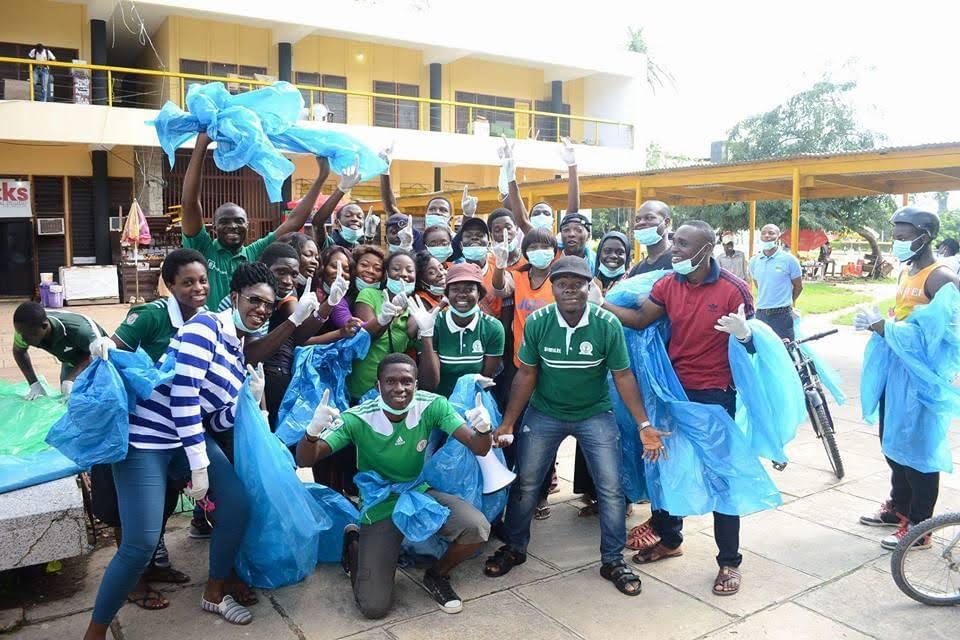
Ireti Temituro

Ireti Temituro
Going out for a run? Might as well bring some friends and trashbags! “Plogging” is the activity of running and picking up litter along the way. In my home country of Nigeria, activists are using this social and fun activity to encourage and educate other young people about waste management.
Ensuring an effective waste management strategy is not only very important for community development, but is also a vital component of supporting climate action. Unfortunately, indiscriminate disposal of wastes is a challenge that exists across different classes and regions of Nigeria.
According to the Nigerian Federal Government’s 2020 Nigerian National Waste Management Policy, “Nigeria produces a large volume of solid wastes out of which less than 20% is collected through a formal system.”
Even in Nigerian academic institutions, this issue is prevalent. As a fresh Masters student in Obafemi Awolowo University (OAU) in 2015, I realized that despite my school’s green reputation and beautiful exterior, illegal waste disposal was still a problem on campus.
So in 2016, while serving as the president of my university’s Environmental Control and Management Student Association (ECOMSA), I teamed up with Lagos-based African Clean Up Initiative (formerly known as Passion House) and Sustyvibes to launch the OAU Campus Cleanup.
With the help of Nigeria’s National Environmental Standard and Regulation Agency (NESREA) and several other clubs on campus, we collected approximately 100 bags of solid wastes which were channeled into appropriate receptacles. After this event, the participating organizations and individuals started organizing weekly, bi-weekly, or monthly cleanup exercises within the school.
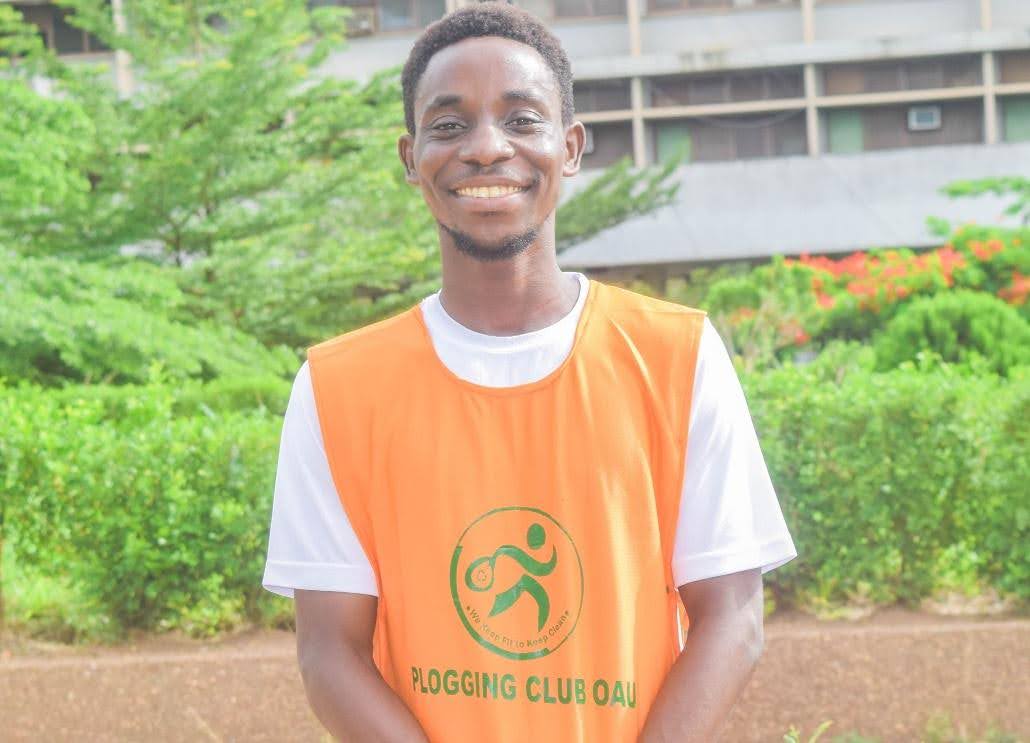
One of the attendees at the OAU Campus Cleanup event was Mayokun Iyaomolere, who would later go on to form his own organization, the Plogging Nigeria Club.
Plogging is a concept created by Erik Ahlstrom, an activist from Sweden who combined his love for hiking and running, with the practice of picking up litter. Iyaomolere’s organization is functional across 18 university campuses in Nigeria with 1,600 members who have collectively picked more than 30 tons of waste since the program’s founding in 2018.
I caught up with Iyaomolere to discuss the progress of his club and his experience with sustainable waste management on Nigerian school campuses. This conversation appears below, edited for length and clarity.
WA: What does ‘sustainable waste management’ mean to you?
MI: I would describe sustainable waste management as a holistic set of policies, infrastructure and behaviors that contribute to reduced use of items, proper disposal of wastes, finding afterlife for some wastes and carefully ensuring all final wastes do not end up polluting the environment.
WA: Did you participate in the OAU Campus Cleanup 2016?
MI: Yes, I participated in the cleanup.
It was one of my first major volunteering experiences. I enjoyed the company of colleagues from academia and (others who) I looked up to in the environment industry in Nigeria.
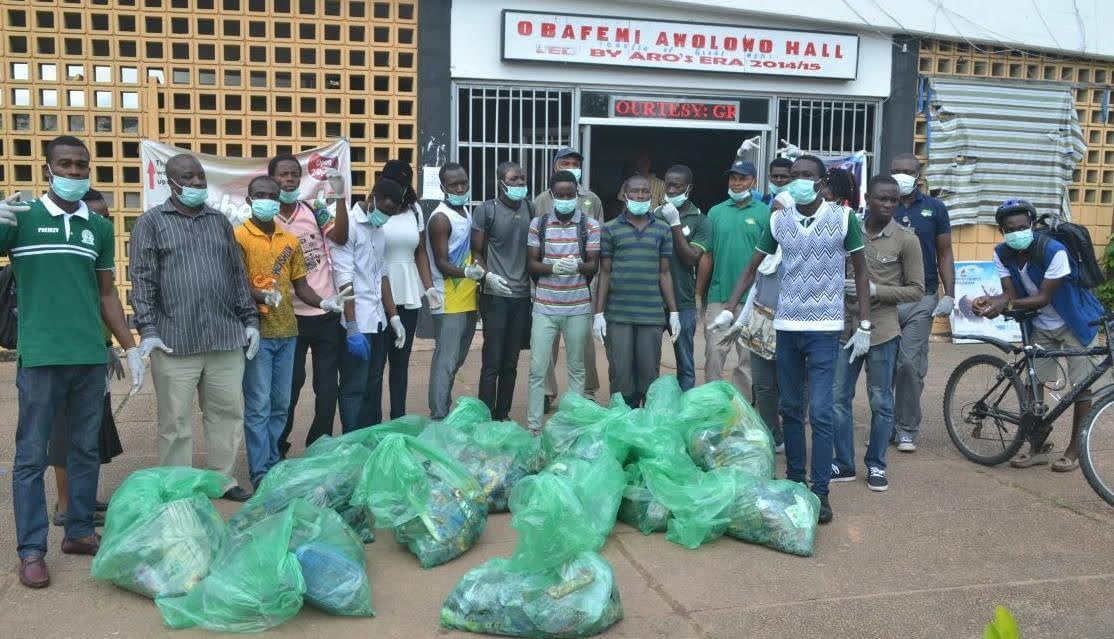
WA: What did you gain from the experience?
MI: I think it was a landmark campus cleanup event that set the pace for hundreds, if not thousands of events that had happened after it.
I met new people and consolidated on existing relationships. Something about doing impactful work together makes me connect better with people.
I also participated in publicity for the event… This would become a skill for me as I grew into the environment space in Nigeria.
WA: What inspired you to starting Plogging Nigeria Club?
MI: Beating plastic pollution with young people. That really was the initial drive as conversations around plastic pollution became more topical.
After we started Plogging Nigeria on the OAU Campus in June 2018, we hosted another massive cleanup at the university in August 2018. The network I built and competencies I developed during the 2016 cleanup really came in handy and helped set Plogging Nigeria on an ascending trajectory.
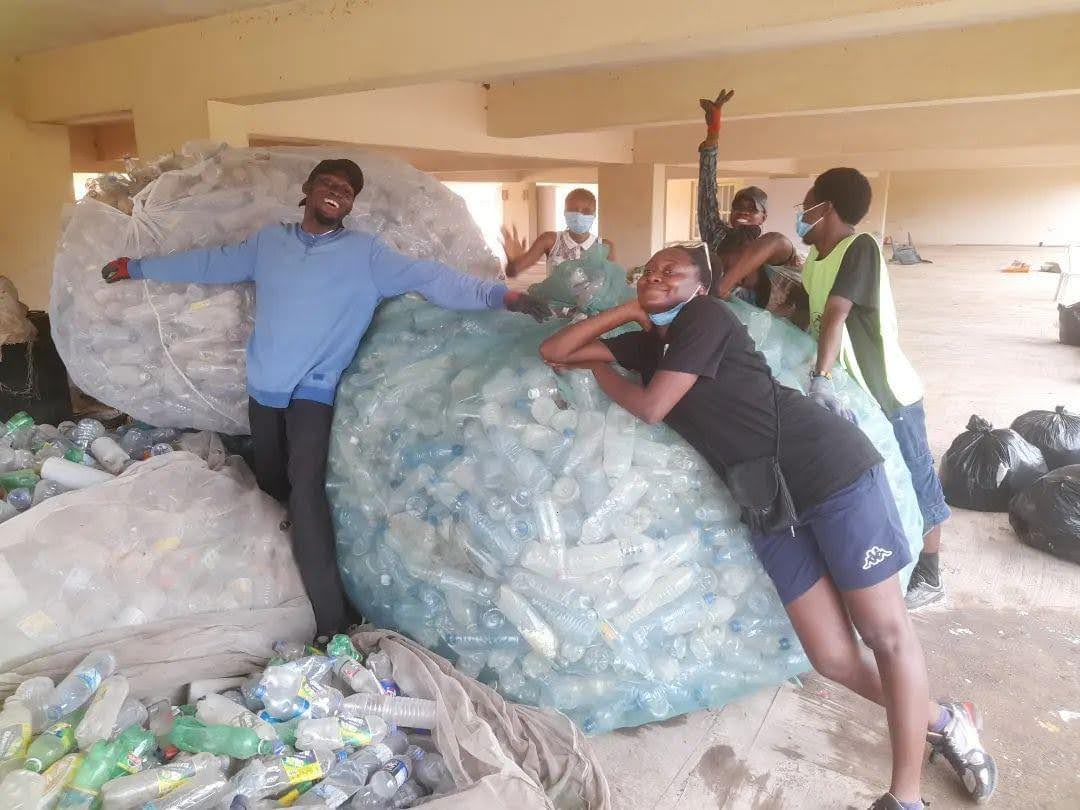
WA: What other programs or projects does Plogging Nigeria hold to engage the youth and educate the public on waste management?
MI: Today, Plogging Nigeria continues evolving. We’ve done quite a lot, and will be doing even more. What we started as just jogging and picking up litter has metamorphosed into one of the most consistent and present environmental organizations in Nigeria and indeed, Africa.
We have established about 30 subsidiary campus and community clubs since June 2018 when we started in OAU. We have over 1,600 volunteers presently. With these clubs, we’ve had over 600 plogging episodes.
We run an experiential environmental education school called the Green Switch Academy. At the Academy, we train people on the basics of environmental sustainability, solid waste management, climate change and the sustainable development goals amongst other things. We have organized 26 cohorts of the academy, with the latest being in February 2024. We have trained exactly 1,659 persons from over 20 countries at the academy.
Another major project for us is Ploggathon, a fusion of the words, “Plogging” and “Marathon.” We led more than 200 people to run a 10km distance in the capital city of Nigeria, competitively cleaning wastes along the way.
We also run these virtual end of year campaigns where we try to educate people on living sustainably during the yuletide period. We’ve done that five years in a row now and have partnered with over 80 organizations for this campaign alone. We have reached millions of virtual audiences through it.
These are some of the things we have done and will build on. Generally, we try to employ plogging, cleanups, arts, circularity, research, and development as advocacy tools for environmental and climate education.
WA: What’s the future of waste management in Nigeria and the role of young people?
MI: The future of waste management in Nigeria! There’s still a lot of work to be done really. We need to put in proper policies and infrastructure that will cause and enforce a change in our waste management behavior in Nigeria.
At Plogging Nigeria, we’ve learned from our work that there’s a dire need for policies, backed up with infrastructure, and stringent enforcement systems. Advocacy is not enough. When one learns not to throw wastes indiscriminately away, they need to have a bin close by to dump the wastes.
Recycling is gaining ground around the country, but is only one part of it. We need better waste disposal and collection systems, landfill management, and should begin to really explore the potentials of generating energy from wastes. There’s a whole lot really, and there’s a wide open sky of opportunities in the future of waste management in Nigeria. Young people have started taking leadership of the waste management space in the country and I believe it will continue to remain so as we aim to rid Nigeria of every form of dirt.
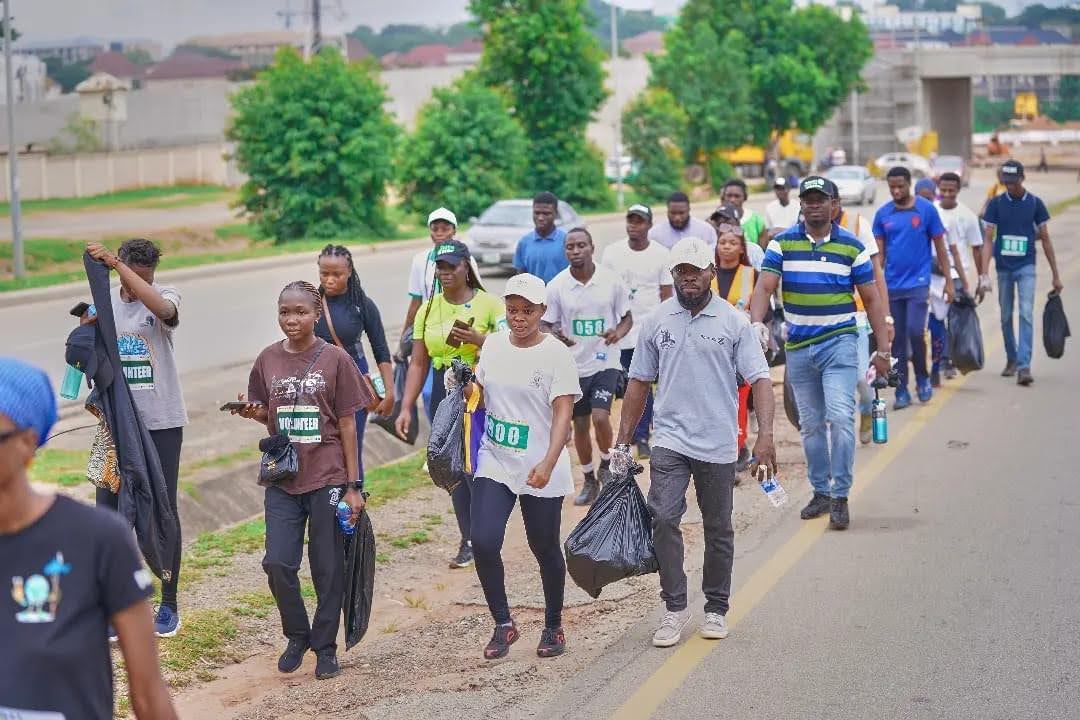
As the movement toward sustainable waste management continues to grow across Nigerian campuses, it is imperative for school management to support environmental clubs situated within their schools and extend collaborations to governmental agencies to further solidify effectiveness in the waste management sector of the communities and of the country at large.
Activists across the campuses are beginning to voluntarily train and educate young people in elementary and secondary schools, this already helps the new generation to be aware of the need for waste management as part of the measures for community development. Thus, this movement of young people shall play a huge role toward sustainable management of wastes.